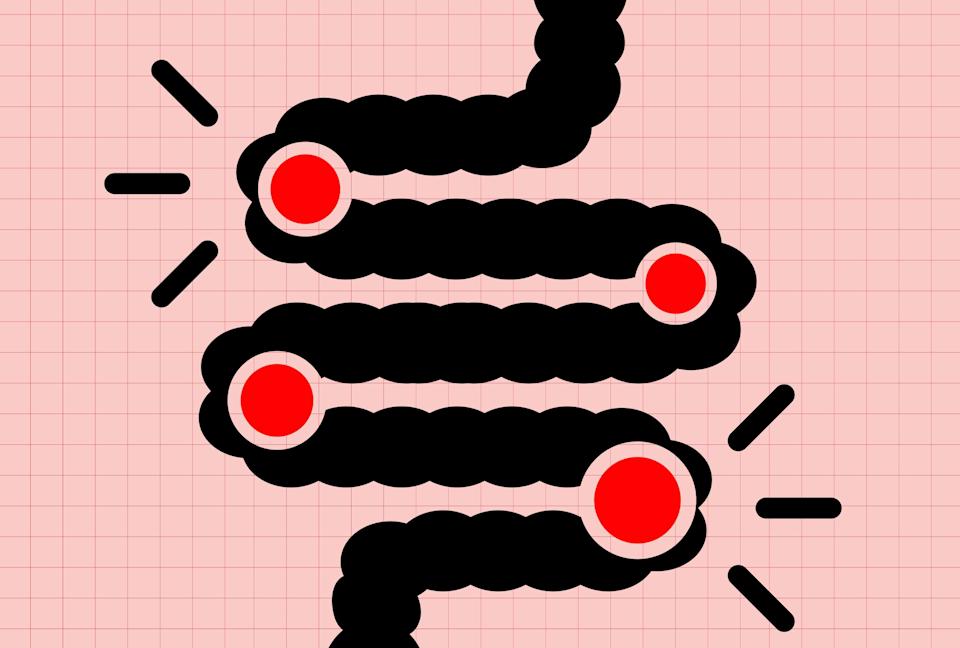Exploring the Link Between Diet and Gastrointestinal Cancer Risk

Design elements: Getty Images. EatingWell design.
The Potential Risks of Acidogenic Foods
Recent research indicates that foods creating acidity in the body, known as acidogenic foods, may heighten the risk of gastrointestinal (GI) cancers.
Foods such as red and processed meats contribute to an acidic environment within the body, prompting further investigation into their effects.
Conversely, increased consumption of plant-based foods has been associated with a decrease in GI cancer risks.
Understanding Homeostasis and pH Balance
The human body constantly strives for homeostasis—an internal equilibrium that includes regulating pH levels. The pH scale measures acidity and alkalinity, ranging from 0 to 14, with 7 indicating neutrality. Values below 7 signify acidity, while values above reflect alkalinity.
For instance, stomach acid, which is crucial for digestion, is highly acidic—around pH 1, nearly as acidic as battery acid. On the other hand, blood pH is maintained at a neutral 7. Our bodies utilize various mechanisms to control and stabilize blood pH, such as expelling carbon dioxide through respiration and urination when acidity rises. Additionally, the pancreas produces bicarbonate to neutralize excess acid.
The Impact of Diet on Acidic Environments
There is ongoing speculation regarding whether high consumption of certain foods results in a more acidic environment, particularly in the gastrointestinal tract. Such acidity may potentially be linked to an increased risk of various GI cancers, including liver, colorectal, gastric, pancreatic, and esophageal cancers.
A study conducted in Korea explored these concerns, noting a possible association between a Western-style diet—characterized by high fat and sugar content—and heightened acidity beneficial for malignant cell proliferation. The research team published their analysis in the European Journal of Clinical Nutrition.
Study Methodology and Findings
Data for this study came from the Cancer Screenee Cohort, which has tracked over 11,000 participants since its inception in 2002. The average age of participants at the beginning was 53, with around 64% being female. On average, participants were followed for eight years.
Participants completed food frequency questionnaires, resulting in calculations of “dietary acid load” based on three distinct methodologies. Researchers determined GI cancer occurrences through the 2020 Korea National Cancer Incidence Database, in addition to cross-referencing electronic medical records for unreported cases.
Demographic factors considered for statistical analysis included body mass index (BMI), physical activity, education level, occupation, marital status, family cancer history, smoking habits, and alcohol consumption.
Significant Findings of the Research
The study concluded that individuals diagnosed with GI cancers often had diets that were more acidogenic than those without such diagnoses. Furthermore, a higher dietary acid load correlated to an increased risk of GI cancer, with this association being more pronounced in males than females. The primary acidifying foods identified were red and processed meats.
Researchers proposed several explanations for the increased risk in males, including better kidney function and acid-base balance maintenance in females and the possible protective effects of estrogen at the cellular level. Additionally, the analysis indicated that males typically consumed diets with higher acid levels and alcohol intake.
However, the study has some limitations, such as its inability to establish causation. It can only indicate a strong correlation between acidogenic foods and GI cancer risk, as other factors like genetics, smoking, and alcohol consumption could also contribute, although adjustments were made for these variables. Moreover, participants’ supplement usage could not be evaluated due to insufficient data.
Implications for Daily Living
The idea of altering one’s body acidity through diet is prevalent, with products like alkaline water gaining popularity. While this study supports the concept, many questions remain unanswered regarding the body’s ability to handle excess acid.
Researchers advocate for replacing red and processed meats with fruits and vegetables, which tend to promote a more alkaline environment. Though citrus fruits and tomatoes are relatively acidic, they still offer numerous health benefits, including immune support and antioxidant properties. Furthermore, citrus fruits are linked to lower rates of colon cancer, raising inquiries about the true factors contributing to GI cancer risks.
To achieve a balanced diet, it is essential to consume a wide variety of foods, particularly plant-based options like fruits, vegetables, whole grains, seeds, legumes, and nuts. This not only meets nutritional needs but also helps create variety in dietary pH.
Encouraging Habit Changes
Assess your dietary habits: Have you been consuming a lot of red and processed meats or sugary foods? Consider practical steps to incorporate more plant-based items into your diet.
Establishing new eating habits can be easier when approached in manageable steps. Start by selecting a simple, attainable change—like swapping a daily soda for sparkling water or opting for a healthy snack, such as nuts and fruit, to boost energy in the afternoon.
The Mediterranean diet serves as an excellent model, emphasizing high fruit and vegetable intake while limiting meat consumption. This diet is associated with higher levels of adiponectin, a compound that protects against cancer.
Conclusion
In summary, the findings suggest a link between a diet high in acidic foods, especially red and processed meats, and an increased risk of GI cancers. Additionally, these foods have connections to higher rates of chronic diseases like diabetes and heart disease. By reducing acidic food intake and opting for more plant-based alternatives, individuals can positively impact their overall health and mitigate disease risk.



